Sarah Collins is linking poverty alleviation
and environmental conservation, with just a little bit of magic. The result?
The Wonderbad, starring in a kitchen near you.
Lying in bed one night during the height of
Eskom’s load shedding in 2008, Sarah Collins suddenly remembered her
grandmother cooking food in a Wonder Box on the KwaZulu-Natal farm where she’d
grown up.
Sarah had returned to South Africa after
living in Botswana for 10 years. where she’d built and owned a game lodge in
the Okavango Delta. and had been searching for ‘a project that could reduce
energy consumption, contribute to poverty alleviation and bring about a change
in behavior towards the environment’ — that night she realised that the Wonder
Box could be exactly that.
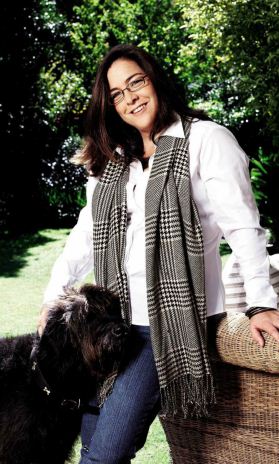
Sarah
Collins is linking poverty alleviation and environmental conservation, with
just a little bit of magic.
Today, four years, a few design changes and
plenty of community buy- in later, the now-called Wonderbag is at the heart of
Sarah’s company, Natural Balance, and is about to become one of Africa’s first
projects to be registered as a United Nations Framework Convention on Climate
Change (UNFCCC) Clean Development Mechanism (CDM) Project.
It’s a simple concept: the Wonder- bag is a
heat-retention cooker made locally from recycled polystyrene balls, which arc
covered in fabric to create a bun-shaped ‘bag’ into which you place your pot of
food after bringing it to the boil. Cooking with a Wonderbag requires only five
to 30 minutes of conventional energy, so less wood, gas, paraffin and coal is
burned.
‘Poverty alleviation is inextricably linked
to environmental conservation. The reality is that the only time people will
change their behavior towards the environment is if it saves them money’ says
Sarah.
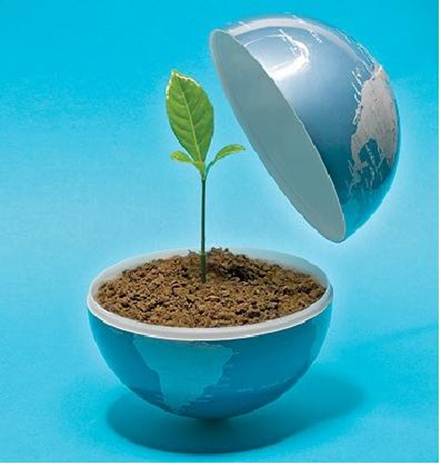
Clean
Development Mechanism (CDM) Project.
‘Change only happens if you can feel it —
and in many ways this is why environmental activists have failed to get their
message across, especially when speaking to a society where poverty is the
overriding issue. You can’t tell a gogo trying to feed her five orphaned
grandchildren that she should change her habits because of an environmental
impact that she might not even live to see. But show her that the Wonderbag
saves her money on paraffin costs — take that little bit of extra stress away
from her — and then you il see the opportunity for the environmental message to
make an impact.’
Poverty alleviation has also come through
the manufacturing process — Natural Balance has partnered with NGO Youth for
Survival to train over 1000 previously unemployed people, who sew each
Wonderbag by hand.
‘One of the reasons why the Wonderbag has
taken off is because it’s not a new technology,’ says Sarah. People have been
cooking in blankets and pillows for years. We’ve just repackaged it in a more
user-friendly design.
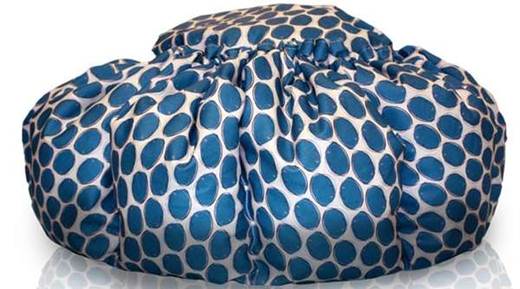
‘One
of the reasons why the Wonderbag has taken off is because it’s not a new
technology,’ says Sarah.
No matter whether you’re a suburban
housewife, a stressed businesswoman or a grandmother in rural KZN, there’s
something about the magic of having a meal on the stove for 15 minutes, popping
it into the Wonderbag and then coming home to a cooked meal hours later that
just appeals to the child inside us all — and that’s without even thinking
about the time, money and energy being saved,’ says Sarah. ‘My aim is to have
one million Wonderbags being used in homes around South Africa within the next
three years — and in the next 20 years. I want every kitchen in the world to be
based around a Wonderbag.’
For Sarah, the Wonderbag project is the
result of a goal she set herself two decades ago. ‘Twenty years ago I asked myself
what I’d do if I had absolutely no barriers, and my answer was that I’d work
with the UN. Now, 20 years later, I’m doing exactly that. ¡ have a deep sense
of commitment to social development, a deep sense of belonging to Africa — and
a passion to leave a legacy where people have been empowered.
Cooking fuel consumption is reduced by
30—50%, which means you’ll reduce your carbon footprint by at least half a ton
of carbon a year band this is a conservative estimate, says Sarah.
It’s this level of potential carbon saving
that grabbed the attention of investment banking firm JP Morgan, who helped
co-finance the project in exchange for the right to trade the carbon credits
(generated by the widespread use of the Wonderbag) on the global carbon credit
exchange.
The carbon saving that a CDM makes is
reflected as one carbon credit for each ton of carbon saved, so because each
Wonderbag saves a ton of carbon every two years. Every Wonderbag sold reflects
as another carbon credit available on this exchange.
Sound confusing? It is, at first — but once
you start thinking of carbon credits as you would a unit trust or shares in a
company, it becomes a little clearer.
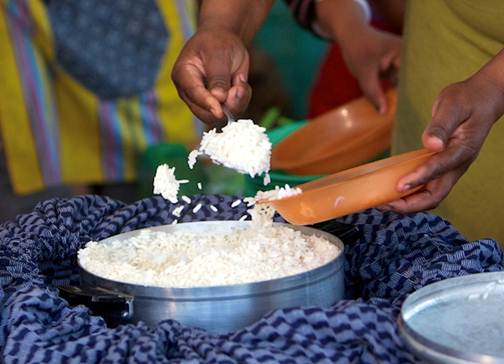
Every
Wonderbag sold reflects as another carbon credit available on this exchange.
‘Greenhouse gas emissions, primarily caused
by fossil fuels, are the main drivers of climate change, so we need to try and
reduce the amount of fossil fuels burned on an unsustainable basis.’ says
Sarah, ‘Large carbon emitters look at what they can do to reduce their reliance
on unsustainable energy resources, but there comes a point where it’s not
possible for them to reduce this any further. It’s at this point that carbon
offsetting comes in — these organisations buy greenhouse gas reduction credits
(or ‘carbon credits’) from a project such as ours to neutralise their own
emissions’ she explains.
The first 5000 Wonderbag carbon credits
were immediately snapped up on the global market by UK bank Barclays, and since
then the distribution of an additional 750000 Wonderbags throughout South
Africa (in partnership with Unilever) has resulted in enough credits to supply
many other organisations.
The money generated from the sale of these
carbon credits (minus the fee charged by JP Morgan for brokering the sale) has
been pumped back into Natural Balance to fund further projects.
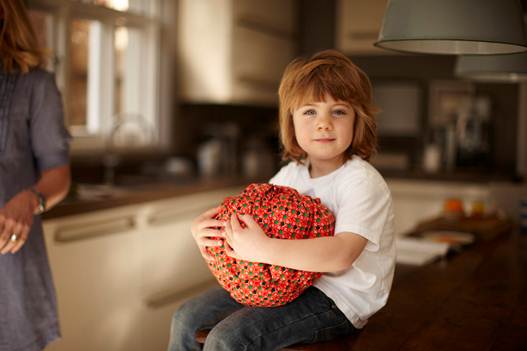
Since
then the distribution of an additional 750000 Wonderbags throughout South
Africa (in partnership with Unilever) has resulted in enough credits to supply
many other organisations.
‘With Natural Balance and the Wonderbag,
we’ve developed a way for people to save money while still feeding their
families.’ says Sarah. ‘We’re showing them how they can connect to the global
environmental message in a practical way, and we arc contributing to
sustainable job creation. That’s empowerment.’